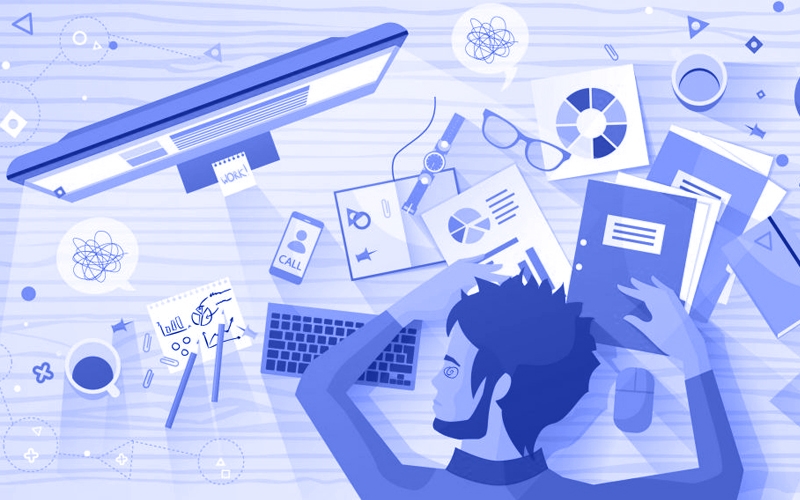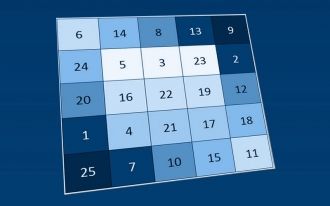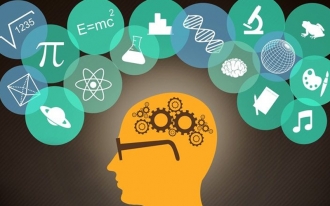- BRAINTRAIN |
- Blog |
- Brain Development |
- Single-Tasking: A Complex Path to Simple Solutions

Bogdan Moroz 05.02.2020 2058 Comments
The unspoken paradigm of modern society is a constant pursuit of multitasking, with technologies and planning methods promoting the simultaneous execution of numerous tasks. The more a worker accomplishes, the more valuable they are to a company (or to themselves in individual business). But is there truly a connection with multitasking, or is this a massive self-deception threatening society with declining psychological health, reduced intellectual potential, and, paradoxically, lower productivity? We’ll explore this question scientifically, relying on practical research from neuropsychology experts, and examine examples of undeniably effective individuals. We’ll learn how to properly train the brain without depleting its resources and share secrets for a successful workday.
Multitasking: A Beautiful Deception of Modernity
Without delving deeply into brain function, nearly every young person would confidently list multitasking among the top qualities of a successful, high-performing worker. This belief has been ingrained in an entire generation’s subconscious and is reinforced by all available technologies. When choosing a new smartphone, you likely inquire about app-switching speed and ensure sufficient RAM for running multiple programs simultaneously.
Being compared to Julius Caesar, who, according to legend, could perform multiple tasks without distraction, is taken as high praise, especially from a boss.
Even online trainers encourage practicing multitasking and learning to quickly shift focus between radically different cognitive processes.
Illusory Sense of Efficiency
Exploring the cause-and-effect behind people’s pursuit of multitasking, Chinese scientist Zen Wong concluded that self-deception is to blame. Those attempting multiple processes simultaneously feel greater emotional satisfaction from their work, but in practice, their productivity is far lower than those focused on a single task. Subconsciously, multitaskers feel a sense of superiority, which is unsupported by evidence.
Hormonal tests revealed that performing multiple tasks simultaneously triggers a dose of dopamine, sparking joy. This effect isn’t innate but a psychosomatic reaction tied to Wong’s observations.
Results Contrary to Expectations
Observations showed that multitasking not only fails to make people more effective but puts them at a disadvantage compared to focused workers. The primary reason is the diminished ability of brain centers to filter irrelevant information. People become accustomed to responding to every stimulus, losing the ability to assess its significance.
Beyond inefficient time use and inability to prioritize important tasks, this lifestyle causes significant physiological strain on the nervous system, contributing to psychosomatic disorders.
Stress, neurosis, panic attacks, and other symptoms from this list are constant companions of an overloaded person unable to focus their attention solely on life’s critical aspects.
Intellectual Degradation Instead of Efficiency
How significant is the negative impact of modern work attitudes in neuropsychology? Extremely, as researchers are concerned not only with declining productivity or accumulated fatigue but also with the long-term negative effects on intellectual potential and cognitive ability.
A Harmful Habit Encouraged by Society
Neurology professor Earl Miller’s concerns were confirmed through experimental observations, revealing a direct link between multitasking and reduced intellectual potential, which doesn’t recover over time.
Detailed analysis showed that regular attempts at multitasking lower IQ by an average of 10 points—10% of the average score for most people. Even more shocking, frequent task-switching has a stronger impact than recreational drug use.
Even a seemingly harmless activity, like a driver talking on a headset, reduces attention by 50–70%. The conclusion is clear: doing multiple tasks simultaneously is a myth.
Brain Energy Depletion
Canadian professor Daniel Levitin from Montreal shares another critical concern, demonstrating that multitasking leads to a persistent energy deficit in brain tissues, reducing efficiency and fostering disorders linked to damaged neural centers.
The brain’s glucose and oxygen transport is limited, yet neural tissues are the body’s most significant energy consumers. This precious resource must be used sparingly and purposefully.
Daily exercise also helps, and it’s not complicated. A simple 30-minute morning walk at a comfortable pace can oxygenate blood and tissues.
Tricks of Successful People
A scientific approach isn’t the only way to see the difference in task-solving methods; practical experience and constant productivity analysis are equally effective. Successful individuals have relied on this for years, leaving a memorable mark in history through persistence and step-by-step analysis. Only beneficial habits remain in their arsenal, enabling monumental progress through small actions.
Effective Techniques of Celebrities
No matter how effective mental training is, the body, including the brain, requires regular rest and recovery. Early in her career, Oprah Winfrey embraced this truth, dedicating 20 minutes twice daily to sit in silence, free from urgent calls or tasks—she’s unavailable for work during this time.
A key challenge for modern successful people is escaping time traps and avoiding them in the future. Time-wasters include social media, messaging groups, celebrity blogs, YouTube channels, smartphone apps, or even music. How to spot them? Simple—they steal your time and distract from primary tasks. If you think about them during work, eliminate this dependency immediately.
Against inefficient multitasking stands Timothy Ferriss, who long ago devised a formula for a successful workday: no more than two critical tasks daily. Planning excessive work doesn’t make you more productive—practice shows the opposite. Two tasks done perfectly are the true path to success.
Other famous and successful individuals agree, recommending keeping a prioritized to-do list handy. This approach eliminates unnecessary stress when choosing the most relevant task. Plan in advance, and spend productive time calmly executing important tasks.
Boring Tasks: Your Ally in Development
How can tedious tasks aid development and goal achievement? They seem to sap motivation, a key factor in productive work. Yet neuropsychologists recommend embracing them to train concentration and single-tasking.
During monotonous or uninteresting tasks, the urge to distract yourself with something more engaging or useful is strongest. This is an ideal time to combat distraction habits. Mastering focus on boring projects makes engaging ones easier.
It won’t happen instantly, and the urge to check email or news will persist, but break work into 20–30-minute segments with 5-minute rest breaks. Distractions are allowed only during these breaks; the rest of the time, focus on the task. This attention training is highly effective and proven in practice.
Proven Techniques for True Efficiency
As promised, we share tested rules to avoid wasting energy and focus solely on important goals.
Another Busy Day Where Nothing Got Done
A familiar scenario: you plan a packed day with important, urgent, and nice-to-do tasks, only to realize by day’s end that nothing was fully completed. The reason is clear—failure to focus on critical tasks due to constant distractions, even without breaks for social media or blogs. In the 20th century, Francesco Cirillo observed this and developed the 25/5 method, alternating focused work with short five-minute breaks. Additionally, schedule specific times for checking emails and messaging to avoid distractions during work or rest.
Eat When You Eat
Many psychologists and neuropsychologists advocate this concept: focus maximally on one task, even if it’s not a primary goal or work stage. Even eating shouldn’t be paired with watching videos or scrolling newsfeeds. As psychologist Jeanne Sio-Fachem states, the brain must be trained like a muscle to hold attention on one activity.
For the same reason, avoid creating distracting temptations during work. If working in a browser, keep only one tab open. This not only sharpens focus but encourages careful information selection. The same applies to your workspace—keep only what’s needed for today’s goal.
For those who can, tie important tasks to different locations, like submitting a report at the office or shooting content in a studio. This helps the brain switch tasks without distraction.
Even rest matters. Randi Zuckerberg, sister of Facebook’s creator and a successful businesswoman, advises living in the moment and enjoying it, not rushing to capture and post it online. Rest should remain rest, bringing joy to you, not envy to others.
Learn to Say No to Projects
It may feel awkward to decline a project, or you might rush to take on more work, only to fail at both primary and additional tasks.
Prioritize quality over quantity. Learn to decline projects you can’t perfect or that won’t yield desired results. Value your time and brain resources.
If you’re eager for a new task but overwhelmed, delegate. Choose the most critical tasks for yourself and confidently pass others to colleagues or subordinates.
What About Music?
Those who work with music might worry about breaking this habit. Good news: non-aggressive music doesn’t affect focus and can be used during work. However, searching for tracks during work hours is a major distraction, stealing precious minutes.
Key takeaways from this article:
- Don’t overplan.
- Choose only what’s important.
- Focus on one task.
- Delegate some tasks.
- Eliminate time traps.
- Rest for yourself.
These tips aren’t new, but understanding their importance can transform your workday and life.




